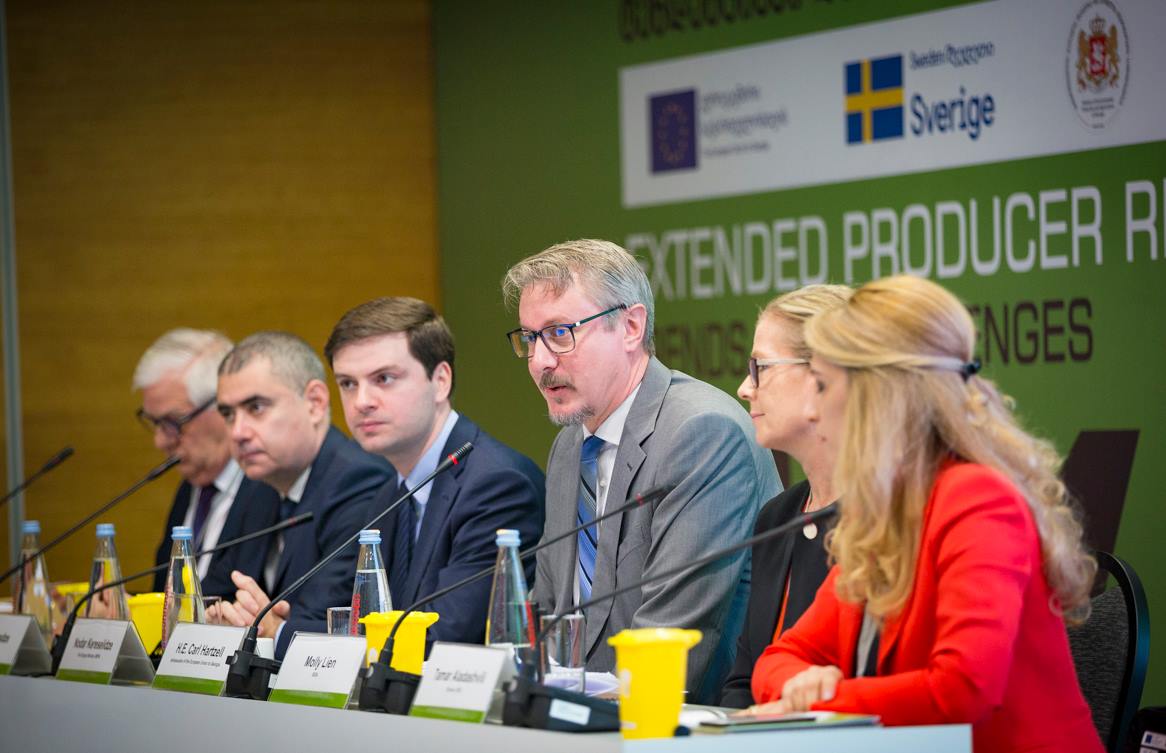News
Extended Producer Responsibility ( EPR ) will come into force by the end of 2019
The forthcoming legislative issues and requirements concerning Extended Producer Responsibility (EPR), as well as best international practices have been brought forward at the meeting, which was held under the initiative of the Ministry of Environmental Protection and Agriculture of Georgia and with the support of the European Union, UNDP and Swedish Government. The First Deputy Minister of Environmental Protection and Agriculture, Nodar Kereselidze made a welcoming speech.
While addressing participants, the First Deputy noted, that extended producer responsibility is regarded as a successful model of waste management, which is implemented in Europe. Nodar Kereselidze drew his attention to the manufacturer / producer / importer ability and responsibility to reduce toxicity and waste, in this regard, taking responsibility for collecting and processing specific waste, which is dangerous for human health and life is of utmost importance- was noted by the First Deputy at the meeting.
"We start active public consultations with the representatives of the private sector, local self-government and other public agencies. We should take into consideration interests of the business sector, but not fail to achieve the goals set in the waste management code "- said Nodar Kereselidze.
"The EU actively supports Georgia. The introduction of the extended producer responsibility is an important step forward in the environmental field of Georgia. We support Georgia and soon we will see the first outcome " - said the Ambassador of the European Union to Georgia, Carl Hartzell.
It should be noted, that 900,000 tons of municipal waste is created in Georgia annually.
Georgia's waste management code will introduce the extended producer responsibility for specific waste that will come into effect from December 2019. Specific waste include: packaging waste (plastic, paper, cardboard, wood, metal, glass), residual electrical and electronic equipment, tires removed from the use, transported vehicles, used oils, used batteries, and accumulators.



